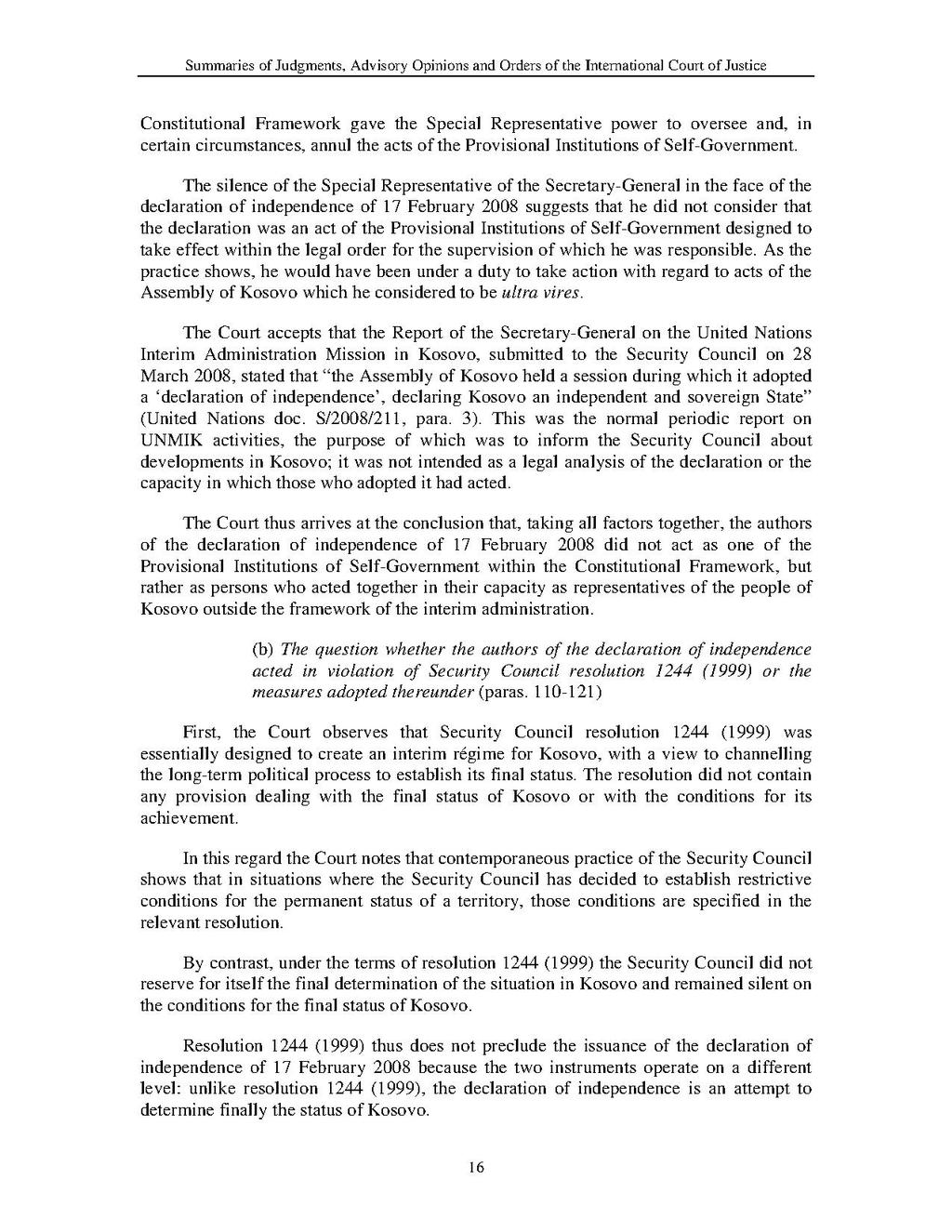Summaries of Judgments, Advisory Opinions and Orders of the International Court of Justice
Constitutional Framework gave the Special Representative power to oversee and, in certain circumstances, annul the acts of the Provisional Institutions of Self-Government.
The silence of the Special Representative of the Secretary-General in the face of the declaration of independence of 17 February 2008 suggests that he did not consider that the declaration was an act of the Provisional Institutions of Self-Government designed to take effect within the legal order for the supervision of which he was responsible. As the practice shows, he would have been under a duty to take action with regard to acts of the Assembly of Kosovo which he considered to be ultra vires.
The Court accepts that the Report of the Secretary-General on the United Nations Interim Administration Mission in Kosovo, submitted to the Security Council on 28 March 2008, stated that "the Assembly of Kosovo held a session during which it adopted a `declaration of independence', declaring Kosovo an independent and sovereign State" (United Nations doc. S/2008/211, para. 3). This was the normal periodic report on UNMIK activities, the purpose of which was to inform the Security Council about developments in Kosovo; it was not intended as a legal analysis of the declaration or the capacity in which those who adopted it had acted.
The Court thus arrives at the conclusion that, taking all factors together, the authors of the declaration of independence of 17 February 2008 did not act as one of the Provisional Institutions of Self-Government within the Constitutional Framework, but rather as persons who acted together in their capacity as representatives of the people of Kosovo outside the framework of the interim administration.
First, the Court observes that Security Council resolution 1244 (1999) was essentially designed to create an interim régime for Kosovo, with a view to channelling the long-term political process to establish its final status. The resolution did not contain any provision dealing with the final status of Kosovo or with the conditions for its achievement.
In this regard the Court notes that contemporaneous practice of the Security Council shows that in situations where the Security Council has decided to establish restrictive conditions for the permanent status of a territory, those conditions are specified in the relevant resolution.
By contrast, under the terms of resolution 1244 (1999) the Security Council did not reserve for itself the final determination of the situation in Kosovo and remained silent on the conditions for the final status of Kosovo.
Resolution 1244 (1999) thus does not preclude the issuance of the declaration of independence of 17 February 2008 because the two instruments operate on a different level: unlike resolution 1244 (1999), the declaration of independence is an attempt to determine finally the status of Kosovo.
16
